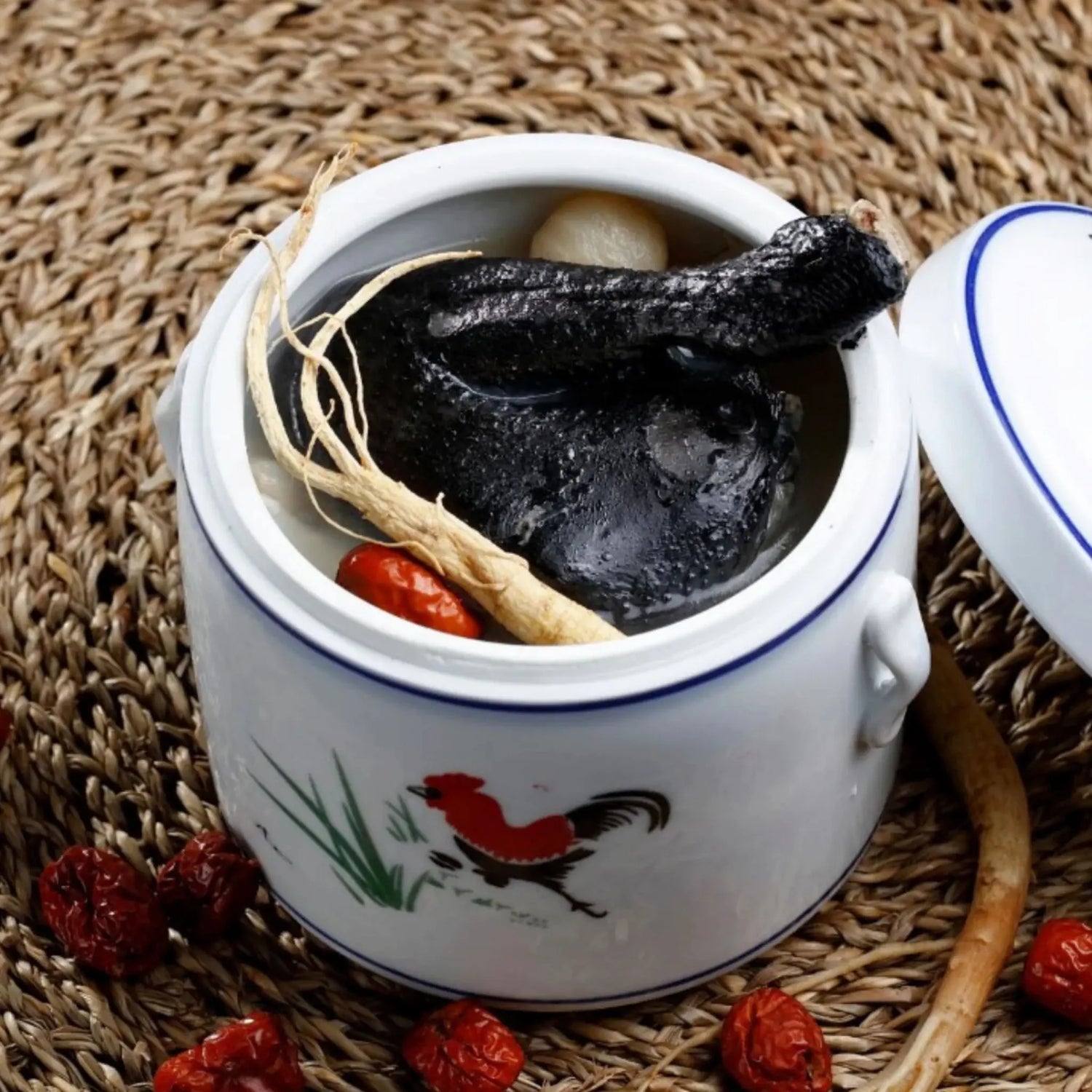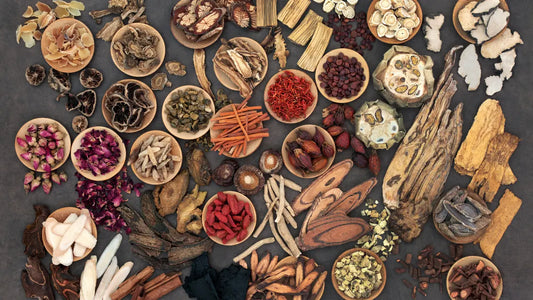What Are the Top Herbs in Postpartum Soup? (Australian Mums Guide)
Welcoming a baby into the world is life-changing, but it also brings immense physical and emotional demands on new mums. In Traditional Chinese Medicine (TCM), the postpartum period known as “zuo yue zi” or “sitting the month”- is seen as a vital window for healing. Central to this recovery is the nourishing power of herbal soups.
For Australian mothers seeking a balance between ancient wisdom and modern wellness, this guide explores the top herbs used in postpartum soup, their benefits, and how to integrate them into daily life.
Why Herbal Soups Are Essential for Postpartum Recovery
Understanding the Postpartum Phase from a TCM Perspective
In TCM, childbirth leaves the body in a vulnerable, “cold” state due to blood loss and energy depletion. Postpartum care aims to replenish “Qi” (life force), rebuild blood, and expel any remaining cold or dampness. Herbal soups are ideal because they are warm, hydrating, and easy to digest-perfect for restoring balance.
Nutritional Demands of New Mums
New mothers need dense nutrition to support uterine healing, hormone regulation, lactation, and immune function. Protein, iron, warming spices, and herbal tonics help restore the body after childbirth while strengthening physical and mental energy.
The Concept of ‘Qi’ and Blood Replenishment
TCM emphasizes the importance of replenishing both Qi (vital energy) and blood, which are lost during delivery. Herbs like Angelica Root (Dang Gui) and Astragalus (Huang Qi) are used to accelerate this process and improve overall wellbeing.
Why Soup Is the Preferred Confinement Food
Soups allow herbs to gently infuse into the body through warm broths, which are less taxing on the digestive system. Warm liquids also promote circulation, support digestion, and aid in the body's natural detoxification processes.
8 Top Herbs for Postpartum Soup & Their Benefits
Astragalus (Huang Qi) – For Vitality & Immune Support
One of the most revered TCM herbs, Astragalus helps:
- Boost immune response, preventing postpartum infections
- Strengthen Qi, promoting stamina and reducing fatigue
- Enhance metabolic function for faster recovery
Angelica Root (Dang Gui) – For Blood Nourishment
Nicknamed the “female ginseng,” Dang Gui is widely used in women’s health:
- Encourages red blood cell production to restore blood lost during childbirth
- Promotes better circulation to speed healing
- Eases menstrual cramps and postpartum fatigue
Wolfberry (Goji Berry) – For Vision & Lactation
A superfood used for centuries, Wolfberries are:
- Rich in antioxidants and vitamin A for eye health
- Thought to improve lactation by nourishing liver and kidney functions
- Mildly sweet, making soups more palatable
Red Dates (Jujube) – Natural Sweetener & Tonic
Red dates are a staple in confinement diets:
- Improve blood quality and increase hemoglobin levels
- Support spleen function, essential for digestion and nutrient absorption
- Act as a gentle natural sweetener with calming properties
Chinese Yam (Shan Yao) – Digestive & Energy Support
This herb is often used in TCM for its:
- Ability to strengthen spleen and stomach Qi
- Support in rebuilding energy levels
- Mild flavor and creamy texture that blend well in soups
Notoginseng (San Qi) – For Healing & Internal Recovery
Ideal for internal trauma and postpartum bleeding, Notoginseng:
- Accelerates wound healing, including C-section recovery
- Reduces inflammation and internal bruising
- Enhances blood circulation without overstimulating the body
Ginger – Warming & Circulation Booster
A pantry staple with deep TCM roots:
- Helps expel “cold” from the body after childbirth
- Aids digestion and reduces bloating
- Enhances the absorption of nutrients from other herbs
Longan – For Emotional Wellbeing
Often overlooked, Longan has profound emotional benefits:
- Nourishes heart blood and calms the spirit
- Supports restful sleep and reduces postpartum anxiety
- Adds a comforting sweetness to soups
How to Combine These Herbs in Confinement Soup
Soup Base Ingredients and Preparation Tips
Start with a protein base such as organic chicken or pork bones. Add ginger slices, red dates, goji berries, and one to two key herbs per batch. Simmer for 2–3 hours for full extraction of nutrients. Use filtered water and avoid salt initially; herbs already bring a natural umami flavor.
Balancing Warming and Cooling Properties
In TCM, it’s vital to maintain internal warmth during postpartum. However, overuse of heating herbs may lead to imbalances. Combine cooling herbs like goji with warming ones like ginger for a balanced soup. Always consult with a TCM practitioner for personalized blends.
Safe Dosages and Cooking Times
While herbs are powerful, more isn’t always better. A general guideline:
- Astragalus: 15–30g
- Dang Gui: 6–12g
- Goji Berries: 10–20g
- Red Dates: 3–5 per pot
Simmer herbs gently to preserve active compounds. Avoid boiling vigorously.
Modern Twist: Using Slow Cookers for Herbal Broths
Busy mums can use slow cookers to prep soups overnight or during naps. This hands-off method retains herbal potency and flavor. Pre-soak tougher herbs like Notoginseng before adding to the cooker for smoother extraction.
Tips for Buying Postpartum Herbs in Australia
Local Asian Grocery Stores vs. Online Herbal Shops
Major cities like Sydney and Melbourne have reputable Asian grocers carrying postpartum herbs. Online options such as TCM specialty stores also provide convenience, especially for rural mums. Always check for ingredient sourcing and reviews.
Identifying High-Quality, Organic Herbs
Look for herbs that are:
- Certified organic or pesticide-free
- Free from sulphur or artificial coloring
- Stored in airtight packaging to preserve potency
Quality herbs should have a strong, fresh aroma and natural color.
Trusted Australian TCM Practitioners’ Advice
Consulting with registered TCM practitioners ensures you choose the right herbs for your constitution. Many offer personalized postpartum recovery plans tailored to individual needs and delivery types (natural or C-section).
Storage and Usage Guidelines
Store herbs in cool, dry places in glass or sealed containers. Label by name and date. Use within 6–12 months for optimal potency. Avoid mixing herbs with strong-smelling foods to prevent contamination.
FAQs – Herbal Soup for Australian Mums
Can I make postpartum soup if I had a C-section?
Absolutely. Many herbs like Notoginseng and Dang Gui specifically support internal wound healing and blood replenishment. Always follow dosage guidelines and get practitioner approval.
How soon after birth should I start drinking herbal soup?
You can begin within 2–3 days postpartum, especially with gentle herbs like goji berries and red dates. Stronger herbs like Dang Gui may be introduced around day 5–7, depending on your delivery and body condition.
Are there any herbs to avoid while breastfeeding?
Yes. Avoid overly bitter or detoxifying herbs like rhubarb or strong laxatives. Stick to nourishing, blood-building herbs. Always confirm safety with your GP or lactation consultant.
Final Thoughts – Healing Through Ancient Wisdom and Modern Nutrition
Listening to Your Body Postpartum
Every mum’s journey is unique. Observe how your body responds to different herbs and adjust accordingly. If you feel bloated or overheated, scale back on warming ingredients like ginger.
Consulting Your GP or TCM Practitioner
Postpartum soups should complement-not replace-medical advice. Always consult your healthcare provider before introducing new herbs, especially if you are on medication or have underlying conditions.
Customising Soups Based on Recovery Needs
Whether you need energy, emotional support, or improved lactation, herbal soups can be tailored to support your personal healing goals. The blend of tradition and science offers a nurturing path toward holistic recovery.
Golden Month encourages Australian mums to embrace the postpartum period with support, rest, and deep nourishment. By integrating TCM herbs into your recovery routine, you empower your body to heal with intention and grace-honoring both ancestral wisdom and your modern motherhood journey.






